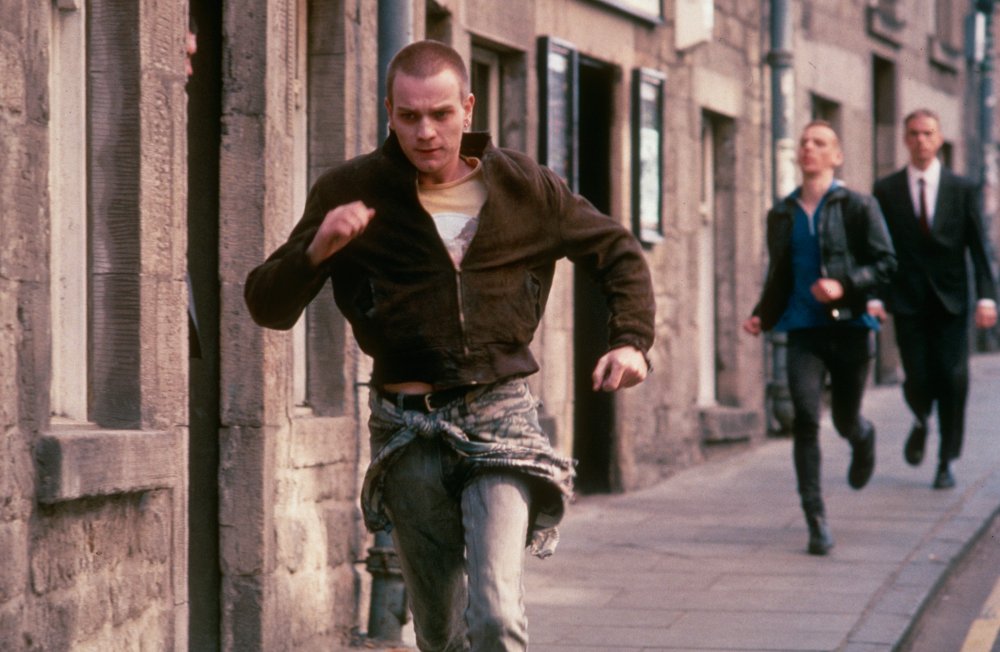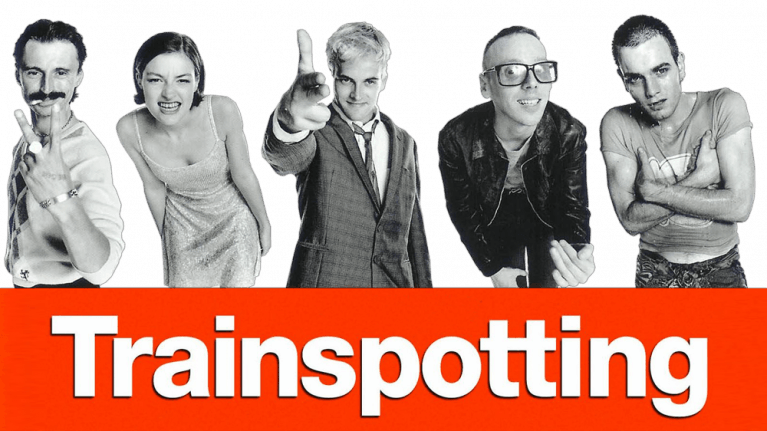Directed by Oscar-winner Danny Boyle, Trainspotting is the story of Mark Renton (Ewan McGregor), a heroin addict and his attempts to go clean.
Working with writer John Hodge and producer Andrew Macdonald for his second feature film, Danny Boyle provides us with one of British cinema’s most revered productions.
Many credit Danny Boyle’s early work, namely ‘Trainspotting’, for revitalising British cinema during the nineties.
The film earns your attention instantly with the famous “Choose Life” scene, accompanied by Iggy Pop’s Lust For Life.

This brilliant opening, one of my favourite in cinema history, lets you get a taste of two things that make the film as good as it is – a quick, witty script and a brilliant soundtrack, one that includes my favourite New Order song.
The script does an exceptional job at fleshing out Renton and his mates’ personalities over the course of the 96-minute runtime, and received an Oscar nod for it’s Adapted Screenplay.
The smart script, penned by Welsh and John Hodge, offers quick dialogue, a crash course on heroin and, as previously mentioned, breathes life into the main quartet as well as some other characters, leaving us with a satisfying end-product.
I was surprised at how funny the film was.
I was well aware that there was comedy but I was surprised to be laughing every few minutes at a film about heroin, something I will blame on my recent viewing of Requiem For A Dream.

The film’s camera work is solid, working especially well during Spud’s (Ewen Bremmer) interview scene, where he spectacularly blows a job interview after Renton gives him speed to loosen him up.
Even early on in his career, Boyle is a fan of using strange and off-kilter camera angles, creating a tetchy energy that no other British director has in their wheelhouse.
The soundtrack is a compilation of fantastic songs, including such artists as Iggy Pop and Lou Reed, as well as Underworld’s Born Slippy, which became a defining anthem of Mid-90’s British culture.
Using the soundtrack, Boyle, with writers Welsh and Hodge, add more personality to the character of Renton.
The trio seem to understand that music is something many deem essential, and to improve their film, give Renton a music taste in order to make him more human.
A part of me connected with Renton as a result – we both agree club music is nothing memorable and that Iggy Pop could easily outdo any song played.
As the film progresses, we become more and more attached to Renton, longing for him to be able to break free from his dead-end life with heroin and go clean.
The great work by McGregor makes this possible, as we feel that Renton is real, thanks to his captivating performance.
Spud, however, is clearly the best character. A dumb, yet loveable addict, Spud’s innocence is quite heart-warming, in a heroin addict way.
The writing shines in the characters. After the film, I feel an emotion for all four main characters – I also feel a hatred for Begbie’s psychopathic actions, actions that instil fear into Spud.
For Sick Boy, I feel a mix of sadness and anger. Sick Boy loses his child halfway through, which I sympathise with him for, but his treatment of Renton throughout his attempts to go clean evoke a sense of anger.

Whatever I felt, at the end of it all, I realised what I was missing out on.
Trainspotting is not the masterpiece some believe it is in my eyes but it is a great film, and I was not left feeling like it could have done better.
It is a film that is fully deserving of its cult classic status, and it’s clear to see how it revitalised British cinema, with other quick, witty films involving criminal activity, such as Lock, Stock and Two Smoking Barrels and Snatch.
It’s clear to see why it’s so loved and now I love it too.
![]()


